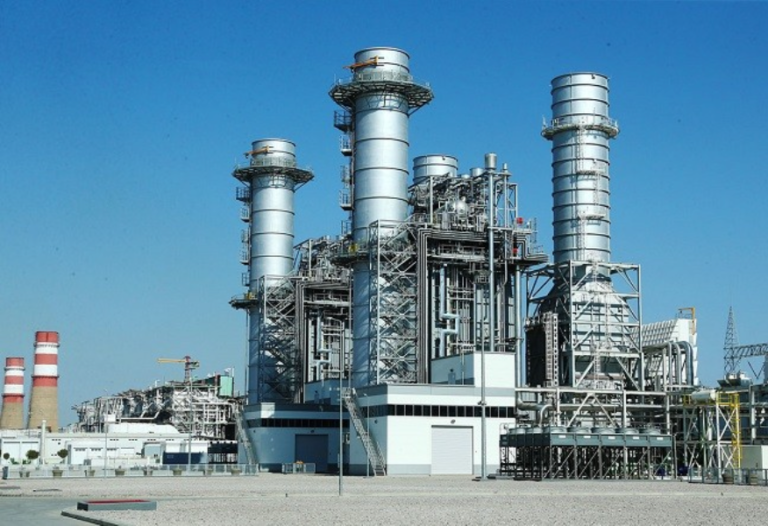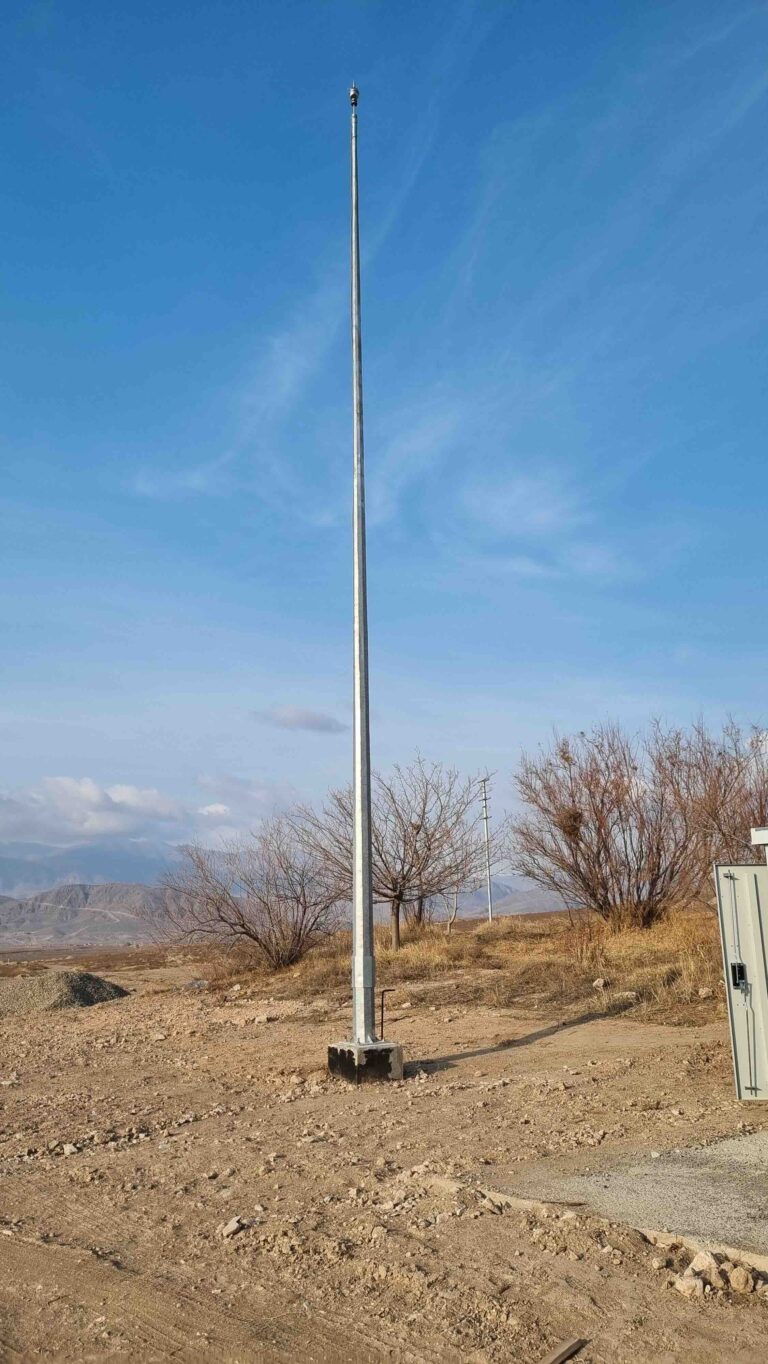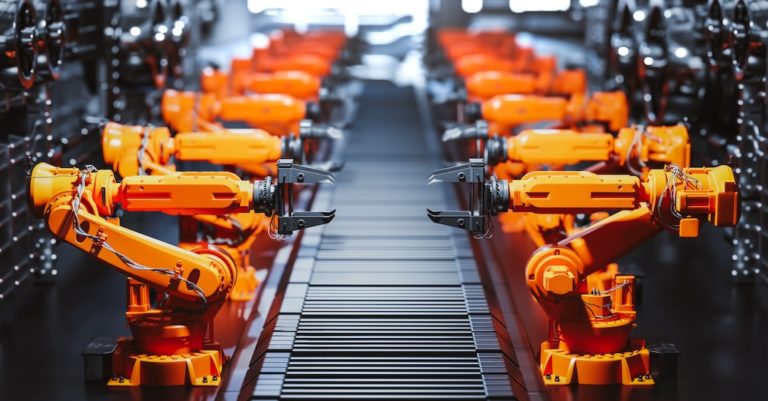What is PRMS? The Importance of Pressure Reduction and Metering Stations
PRMS (Pressure Reduction and Metering Stations) are critical components of natural gas infrastructure, ensuring the safe and efficient delivery of...
Devamını Oku

Exproof refers to a type of equipment or system specifically designed to prevent explosions in hazardous environments where flammable gases, vapors, or dust may be present. These systems are critical in industries such as oil and gas, chemicals, pharmaceuticals, mining, and food processing. In such areas, even a tiny spark or rise in temperature can trigger a catastrophic explosion. This is where exproof technologies come into play—engineered to contain or isolate potential ignition sources, thereby maintaining operational safety and regulatory compliance. So, what is exproof? In simple terms, it’s a life-saving engineering solution tailored for explosive atmospheres.
To fully understand what exproof means, it’s essential to recognize the stringent safety standards these systems must meet. Exproof systems are built to prevent any internal ignition from affecting the surrounding environment. Unlike standard devices, they are tested to withstand extreme conditions and are certified under international standards such as ATEX or IECEx. By using such equipment, companies significantly reduce the risk of workplace accidents, production downtime, and legal liabilities. Thus, what is exproof and where is it used is not merely a technical question, but a fundamental concern for any safety-conscious industrial operation.
Exproof, short for “explosion proof,” is a term used to describe electrical and mechanical equipment designed to operate safely in environments with flammable gases, vapors, or combustible dust. These devices are built in a way that prevents internal sparks or high temperatures from igniting the hazardous substances in the surrounding atmosphere. In such environments, safety is paramount, and the use of exproof systems is not just a recommendation—it is often a legal requirement. Whether it’s an industrial light fixture, a motor, or a control panel, when placed in an explosive atmosphere, it must comply with strict exproof standards to be considered safe.
Understanding what exproof truly means requires familiarity with international safety certifications such as ATEX (EU) or IECEx (global). These systems do not prevent an explosion from happening inside a device; instead, they are engineered to ensure that if an ignition occurs within the enclosure, it won’t escape and cause a larger explosion in the surrounding environment. In essence, what does exproof mean goes beyond just a protective housing—it represents a comprehensive approach to hazard management. For companies working in high-risk zones, exproof technology is a key part of their overall risk mitigation and operational integrity.
The working principle of exproof systems revolves around the prevention of explosion hazards by containing or isolating potential ignition sources within specially designed enclosures. These enclosures are constructed to be robust, sealed, and resistant to heat or pressure that could result from an internal spark or fire. If an explosion occurs inside the enclosure, the design ensures that the pressure is either absorbed or released in a controlled way, without igniting the external atmosphere. This concept is critical in answering the question: what is exproof and where is it used, as the design philosophy directly addresses both functionality and safety in explosive environments.
Exproof systems are not limited to just enclosures—they also include sealed cable glands, explosion-proof fittings, and temperature-regulating technologies. The combination of these features ensures that no external spark, flame, or excessive heat can emerge from the device. Engineers assess every possible point of failure and construct exproof systems to eliminate any risk of ignition. When exploring what is exproof, one must also understand the importance of proper installation and maintenance, as even a small mistake could compromise the protective integrity. This principle forms the foundation of safety in industries where flammable substances are part of daily operations.
Exproof products are essential in environments where flammable gases, vapors, or dust are present and could ignite under certain conditions. These environments include a wide range of industries such as oil and gas, chemical processing, pharmaceuticals, mining, and food manufacturing. In these sectors, a single spark from standard equipment could result in devastating explosions, making it critical to use certified exproof devices. These systems provide peace of mind, knowing that even in the most volatile settings, operations can continue safely. So, for businesses that ask what is exproof and where is it used, the answer lies in its application across high-risk, high-demand industries.
In addition to major industries, exproof systems are also utilized in smaller yet equally hazardous facilities such as paint shops, grain silos, and flour mills. These environments often deal with airborne particles that, when mixed with air in the right ratio, become highly explosive. Exproof equipment ensures that ignition sources are either eliminated or fully contained. The growing demand for safety and compliance with international standards makes these systems indispensable. If you’re trying to understand what exproof is in real-world terms, just look at any sector where flammable materials are handled daily—this is where exproof technology becomes a silent guardian.
Oil and gas facilities are among the most critical environments requiring exproof equipment due to the constant presence of flammable gases and vapors. From offshore drilling platforms to refineries and storage terminals, the risk of explosion is ever-present. In these settings, even routine activities like switching on a light or activating a pump can be hazardous without proper protection. That’s why exproof motors, lighting systems, control panels, and connectors are standard. Understanding what exproof is becomes especially important here, as the technology is a frontline defense against potentially catastrophic incidents.
The chemical and pharmaceutical industries handle volatile solvents, gases, and fine powders daily, creating a high-risk environment for explosions. To maintain safety and comply with global regulations, these industries rely heavily on exproof equipment in their laboratories, production lines, and storage areas. Motors, mixers, ventilation systems, and sensors must all be designed to prevent any spark or heat from escaping the device. For professionals in these fields, fully understanding what does exproof mean is essential, as it directly relates to operational safety and the protection of human life and infrastructure.
Mining and underground environments pose unique explosion hazards due to the presence of methane gas and combustible dust. In these settings, the use of standard electrical equipment can be extremely dangerous. That’s why exproof systems are essential for ventilation fans, lighting, communication devices, and drilling machinery. These systems are engineered to contain any ignition within, preventing external detonation. When considering what is exproof, mining is one of the clearest examples of its necessity—where safety must be engineered into every piece of equipment operating below the surface.
In food processing plants and flour mills, airborne dust particles like flour, sugar, or starch can create explosive atmospheres when suspended in the air. A single spark from conventional equipment may be enough to trigger a severe dust explosion. That’s why exproof lighting, motors, and control panels are vital in these settings. These devices are built to operate without releasing any ignition source into the surrounding environment. Understanding what is exproof and where is it used becomes crucial for food industry operators aiming to maintain both safety and regulatory compliance in these high-risk areas.
The core difference between exproof and normal equipment lies in how they manage ignition risks in hazardous environments. Normal industrial equipment is designed for general-use conditions and lacks the protective features needed to contain sparks, heat, or pressure. In contrast, exproof devices are engineered with heavy-duty, sealed enclosures that prevent any internal ignition from escaping and igniting the surrounding atmosphere. This distinction is fundamental to understanding what does exproof mean—it’s not just about durability, but about isolation, containment, and total environmental protection.
Moreover, exproof systems must comply with rigorous global certifications such as ATEX and IECEx, which require testing for pressure resistance, flame paths, and temperature control. Normal equipment typically does not undergo such testing and is not suitable for explosive atmospheres. Exproof systems also require specialized installation and maintenance procedures, ensuring their integrity over time. For industries that ask what is exproof and where is it used, the answer is clear: wherever there’s a risk of explosion, exproof technology is not a luxury—it’s a necessity.

PRMS (Pressure Reduction and Metering Stations) are critical components of natural gas infrastructure, ensuring the safe and efficient delivery of...
Devamını Oku
Industrial facilities are among the most vulnerable structures when it comes to lightning strikes due to their wide surface areas,...
Devamını Oku
Industrial automation refers to the use of control systems, such as computers or robots, and advanced technologies to manage different...
Devamını OkuPROTECTION OF PERSONAL DATA
WEBSITE COOKIE POLICY
Your personal data; It is one of the leading principles of our Organization to protect the privacy of visitors to the website (www.adatech.com.tr) operated by ADATECH as the data controller. This Cookie Usage Policy (“Policy”) explains to all our website visitors and users which types of cookies are used and under what conditions.
Cookies are small text files stored on your device or network server by websites you visit on your computer or mobile device.
They are generally used to provide you with a personalized experience during your use of the website you visit, to improve the services offered and to improve your experience, and may contribute to ease of use while browsing a website. If you do not prefer the use of Cookies, you can delete or block Cookies in your browser settings. However, we would like to remind you that this may affect your use of our website. Unless you change your cookie settings in your browser, we will assume that you accept the use of cookies on this website.
1. WHAT KIND OF DATA IS PROCESSED IN COOKIES?
Cookies on websites, depending on their type, collect data about your browsing and usage preferences on the device you visit the site. This data includes information about the pages you access, the services and products you review, your preferred language option and other preferences.
2. WHAT is a solution and what are its intended uses?
Cookies are small text files that are stored on your device or network server through browsers by websites you visit. These small text files, which contain your preferred language and other settings on the site, help us remember your preferences the next time you visit the site and make improvements to our services to improve your experience on the site. Thus, you can have a better and personalized usage experience on your next visit.
The main purposes of using cookies on our Website are listed below:
3.TYPES OF COOKIES USED ON OUR WEBSITE
3.1. Oturum Çerezleri
Session cookies ensure that the website functions properly during your visit. They are used for purposes such as ensuring the security and continuity of our sites and you during your visit. Session cookies are temporary cookies, they are deleted when you close your browser and come to our site again, they are not permanent.
3.2. Persistent Cookies
These types of cookies are used to remember your preferences and are stored on your device via browsers. Persistent cookies remain stored even after you close your browser or restart your computer from which you visited our site. These cookies are kept in subfolders of your browser until they are deleted through your browser’s settings.
Some types of persistent cookies may be used to provide you with special suggestions, taking into account issues such as your purpose of using the Website.
Thanks to persistent cookies, if you visit our Website again with the same device, it is checked whether there is a cookie created by our Website on your device and if there is, it is understood that you have visited the site before and the content to be transmitted to you is determined accordingly and thus a better service is provided to you.
3.3. Mandatory/Technical Cookies
These cookies are essential for the website you visit to function properly. The purpose of such cookies is to provide necessary services by enabling the website to function. For example, it allows you to access secure parts of the website, to use its features, to navigate on it.
3.4. Analytical Cookies
They collect information about the way the website is used, the frequency and number of visits, and show how visitors navigate to the site. The purpose of using such cookies is to increase performance by improving the way the site functions and to determine the general trend direction. They do not contain data that could enable the identification of visitors. For example, they show the number of error messages displayed or the most visited pages.
3.5. Functional/Functional Cookies
It saves the choices made by the visitor within the site and remembers them on the next visit. The purpose of such cookies is to provide ease of use to visitors. For example, it prevents the site user from re-entering the user password on each page they visit.
3.6. Targeting/Advertising Cookies
They enable the measurement of the effectiveness of advertisements served to visitors and the calculation of the number of times the advertisements are viewed. The purpose of such cookies is to serve ads customized to the interests of visitors.
Likewise, they enable the detection of visitors’ interests specific to their browsing and the presentation of appropriate content. For example, it prevents the advertisement shown to the visitor from being shown again in a short time.
4. HOW TO MANAGE COOKIE PREFERENCES?
To change your preferences regarding the use of cookies or to block or delete cookies, simply change your browser settings.
Many browsers give you the option to accept or reject cookies, accept only certain types of cookies, or be alerted by the browser when a website requests to store cookies on your device so that you can control cookies.
It is also possible to delete cookies previously saved in your browser.
If you disable or refuse cookies, you may need to set some preferences manually, some features and services on the website may not function properly as we will not be able to recognize and associate your account. You can change the settings of your browser by clicking on the relevant link from the table below.
5. ENFORCEMENT OF WEBSITE PRIVACY POLICY
Website Privacy Policy …./…./…./…. . is dated. In case all or certain articles of the Policy are renewed, the effective date of the Policy will be updated. The Privacy Policy is published on the website of the Authority (www.adatech.com.tr) and made available to the relevant persons upon the request of the personal data owners.
ADATECH
Address: Esenyalı Neighborhood Yanyol Street Varyap Plaza No:61-148 Pendik / Istanbul
Telephone: +90 (216 ) 514 80 69
E-mail: info@adatech.com.tr
Web Address: www.adatech.com.tr